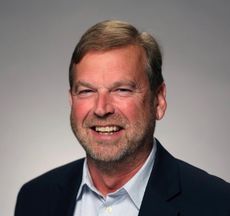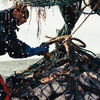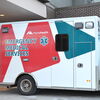
Processing Your Payment
Please do not leave this page until complete. This can take a few moments.
- News
-
Editions
-
- Lists
-
Viewpoints
-
Our Events
-
Event Info
- Business Leaders of the Year Reception 2025
- Women's Leadership Forum 2025
- On the Road with Mainebiz in Bethel
- Health Care Forum 2025
- On The Road with Mainebiz in Greenville
- On The Road with Mainebiz in Waterville
- Small Business Forum 2025
- Outstanding Women in Business Reception 2025
- On The Road with Mainebiz in Bath
- 60 Ideas in 60 Minutes Portland 2025
- 40 Under 40 Awards Reception 2025
- On The Road with Mainebiz in Lewiston / Auburn
- 60 Ideas in 60 Minutes Bangor 2025
Award Honorees
- 2025 Business Leaders of the Year
- 2024 Women to Watch Honorees
- 2024 Business Leaders of the Year
- 2023 NextUp: 40 Under 40 Honorees
- 2023 Women to Watch Honorees
- 2023 Business Leaders of the Year
- 2022 NextUp: 40 Under 40 Honorees
- 2022 Women to Watch Honorees
- 2022 Business Leaders of the Year
-
-
Calendar
-
Biz Marketplace
- News
- Editions
- Lists
- Viewpoints
-
Our Events
Event Info
- View all Events
- Business Leaders of the Year Reception 2025
- Women's Leadership Forum 2025
- On the Road with Mainebiz in Bethel
- Health Care Forum 2025
- On The Road with Mainebiz in Greenville
- + More
- On The Road with Mainebiz in Waterville
- Small Business Forum 2025
- Outstanding Women in Business Reception 2025
- On The Road with Mainebiz in Bath
- 60 Ideas in 60 Minutes Portland 2025
- 40 Under 40 Awards Reception 2025
- On The Road with Mainebiz in Lewiston / Auburn
- 60 Ideas in 60 Minutes Bangor 2025
- - Less
Award Honorees
- 2025 Business Leaders of the Year
- 2024 Women to Watch Honorees
- 2024 Business Leaders of the Year
- 2023 NextUp: 40 Under 40 Honorees
- 2023 Women to Watch Honorees
- 2023 Business Leaders of the Year
- + More
- 2022 NextUp: 40 Under 40 Honorees
- 2022 Women to Watch Honorees
- 2022 Business Leaders of the Year
- Nomination Forms
- Calendar
- Biz Marketplace
With $383K grant, aquaculture ‘pioneers’ program aims to grow workforce
 Courtesy / ZFund, GoodFight Media, Maine Aquaculture Association
A new program seeks to train more workers for Maine’s growing aquaculture industry. Here, Jake Patryn and Morgan-Lea Fogg, of Nautical Farms in Machias, cultivate seaweed.
Courtesy / ZFund, GoodFight Media, Maine Aquaculture Association
A new program seeks to train more workers for Maine’s growing aquaculture industry. Here, Jake Patryn and Morgan-Lea Fogg, of Nautical Farms in Machias, cultivate seaweed.
Maine’s aquaculture industry has been cultivating a new workforce and new growth opportunities in recent years. Now a new pilot program is getting ready to provide a pathway to long-term careers in the sector.
FocusMaine and Educate Maine on Thursday announced the Aquaculture Pioneers Program, a two-year effort funded through a $382,504 grant from the Builders Initiative, according to a news release. The program launches this spring.
Builders Initiative is a private foundation in Bentonville, Ark.
Paid internships
The program will provide paid internships designed to connect aquaculture businesses to new talent and create a culture of professional training, building on principles and practices of long-term stewardship of Maine’s ocean resources.

“The Aquaculture Pioneers program is an important component in the state's ongoing development of a diverse and competitive aquaculture sector,” Sebastian Belle, executive director of Maine Aquaculture Association, said in the release.
Students who gain hands-on experience through the program will have a significant advantage as they seek employment with our members.”
The program builds on three FocusMaine initiatives.
The first is Maine Career Catalyst, an experiential learning program designed to introduce interns as well as apprentices and co-op students to career opportunities and to Maine’s lifestyle. The program, another joint effort of FocusMaine and Educate Maine, has served more than 2,000 interns and 90 companies since 2017 and has so far supported over 100 young adults interested in aquaculture.
The second is a series of investments in FocusMaine’s aquaculture implementation partners — the Gulf of Maine Research Institute, the Maine Aquaculture Association and Educate Maine — to build the talent pipeline and identify the skills needed to grow the industry.
The third effort is the Seafood Accelerator for Maine (SEAMaine). FocusMaine, along with the University of Maine, the Maine Technology Institute and others, helped launch the statewide initiative with funding from the U.S. Economic Development Administration to create a line of sight into the future of Maine’s marine economy.
Community college students
Students from Maine’s community colleges will be the initial target audience with a goal of increasing diversity and equity in the sector. The program will provide paid, hands-on experiences that afford students professional opportunities while also helping businesses build a pipeline for new talent.
The program will introduce students to industry standards and best practices for sustainability and ocean conservation while providing a pathway to emerging apprenticeship programs.
“Our vision in launching the Aquaculture Pioneers Program is to fuel the growth of Maine’s sustainable aquaculture industry with new skills and a new generation of leaders who understand the value of our ocean-based economy,” said Kimberly Hamilton, president of FocusMaine.

Hamilton said that FocusMaine’s work with industry partners, along with the Maine Aquaculture Workforce Development Strategy, have revealed that practical know-how is important to businesses and that on-the-job training supported by formal, competency-based training is what employers are looking for.
“The study notes, in particular, that one of the barriers to recruiting and retaining talent is the ‘lack of clear and well-communicated career progression opportunities,’” she said. “This is a part of the solution to that problem.”
Kate Howell, program director of Educate Maine, said the internships will allow students interested in Maine aquaculture to connect with industry leaders and gain skills and will also give businesses the opportunity to bring in talent.
Fast-growing industry
Globally, aquaculture is the fastest-growing form of food production on earth, accounting for more than half of all fish captured or produced for human consumption.
Although the U.S. is the third-largest market for seafood in the world, it lags the rest of the world in fish production and imports 91% of its seafood.
"Training a new generation of aquaculturalists who understand the power of restorative aquaculture is central to the health of our oceans,” said Peter Bryant, senior program officer of the Builders Initiative.
Other recent efforts to grow the industry include plans for a workforce training system and the release late last year of a set occupational standards for marine farming — the first such benchmarks in the country, according to industry experts.
Aquaculture in Maine includes in offshore beds, open waters and, increasingly, on land. Between 2007 and 2020, employment in Maine’s aquaculture sector nearly doubled.
Mainebiz web partners
These are exciting times -- but we don't import 91% of our seafood. We don't keep good enough records for us to even know what that number is really. For example, all of our seafood that is processed overseas comes back in as a foreign import, not as a domestic product -- from eels to lobster to tuna to salmon. In other words, we supply the raw material and import the finished product.









1 Comments